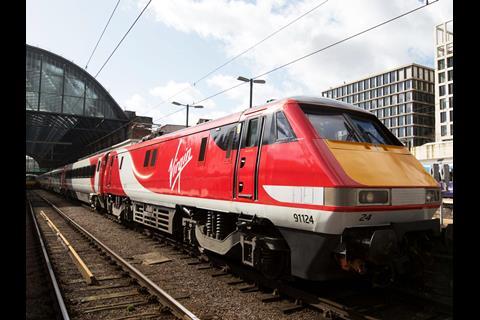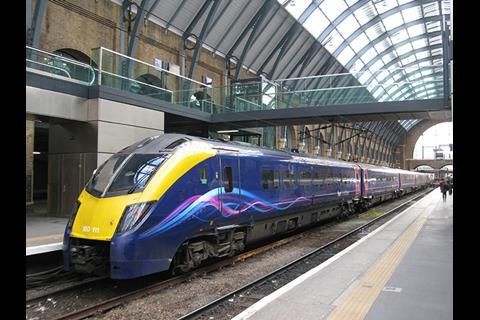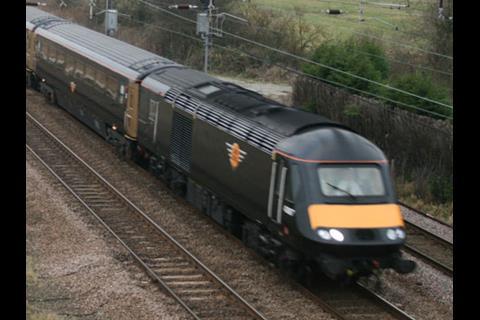UK: The Office of Rail & Road announced on May 12 that it had approved applications from Virgin Trains East Coast and FirstGroup for the operation of new passenger services on the East Coast Main Line, but had not approved those from Alliance Rail’s Great North Eastern Railway Company Ltd.
The VTEC services formed part of its winning bid for the InterCity East Coast franchise, which started in March 2015 and runs until at least March 31 2023.
ORR has extended access rights for VTEC’s existing services from the expiry of the current access agreement in December 2017, and has also granted additional firm rights to add services to Bradford, Lincoln and Harrogate from May 2019 and Edinburgh and Middlesbrough from May 2021. Should capacity become available sooner, the service extensions to Edinburgh could start from May 2019.
FirstGroup’s East Coast Trains Ltd has been granted 10-year track access rights which will enable it to launch a London – Edinburgh open access service by 2021, with five trains/day each way calling at Stevenage, Newcastle and Morpeth. It plans to order five ‘state-of-the-art inter-city electric trains’, which would have one class of accommodation and be designed to attract air or coach passengers to rail.
‘Our new service will widen the choice of travel options between these cities and offer an attractive alternative to those available today’, said FirstGroup CEO Tim O’Toole. ‘We will offer genuinely low fares at half the average price of today, while adding significant benefits to the UK economy. Our brand new trains will be cheaper than other rail services, greener than the plane, quicker than the coach and will get passengers from London to Edinburgh earlier than they can arrive today, all for an average fare of less than £25.’
Responding to ORR’s decision to approve the FirstGroup open access services, Martin Griffiths, CEO of Stagecoach Group which holds a 90% stake in VTEC, said ‘we do not believe the granting of these services within a franchised system and without a level playing field is in the best interests of passengers, taxpayers or communities. We will assess the ORR decision and implications in detail and review our options.’
Alliance is a sister company of existing Arriva-owned open access operator Grand Central, and had proposed open access services from London to Edinburgh calling at Newcastle, from London to 'a new station to be built to the east of Leeds' and Ilkley, and from London to Scunthorpe, Grimsby and Cleethorpes. It used the GNER brand, reviving the name of a former franchised operator on the ECML. Alliance said it was 'naturally disappointed' not to have received approval, and 'the significant benefits that would have been delivered for many northern towns and cities has been lost, at least in the short term.' It intends to ‘re-visit our applications and continue to develop new proposals’.
ORR had received the applications from the three companies in 2014-15, and its decisions had ‘been informed by extensive analysis, formal industry hearings and detailed engagement with all parties’, according to John Larkinson, Director of Railway Markets & Economics. ‘We have carefully weighed up the potential passenger benefits and the financial impacts on existing operators and the government, as we are required to do by law’, he said, and the new services would ‘give passengers more choice on services to Edinburgh and London and provide more frequent trains to towns and cities which are not so well served by rail today’.
Paul Plummer, Chief Executive of the Rail Delivery Group, said ‘competition between operators as well as competition for the right to run franchises can deliver real benefits for passengers and taxpayers, but one of our biggest challenges is to make best use of scarce capacity to provide ever-better connections between our cities and this requires a clear and consistent approach to franchising, competition and regulation.’
- Having published a consultation document in December 2015, ORR is to consult on possible changes to network charges later this year, including the ‘need to consider whether some open access operators should make a greater contribution to network costs, particularly where capacity is scarce and most valuable.’




















